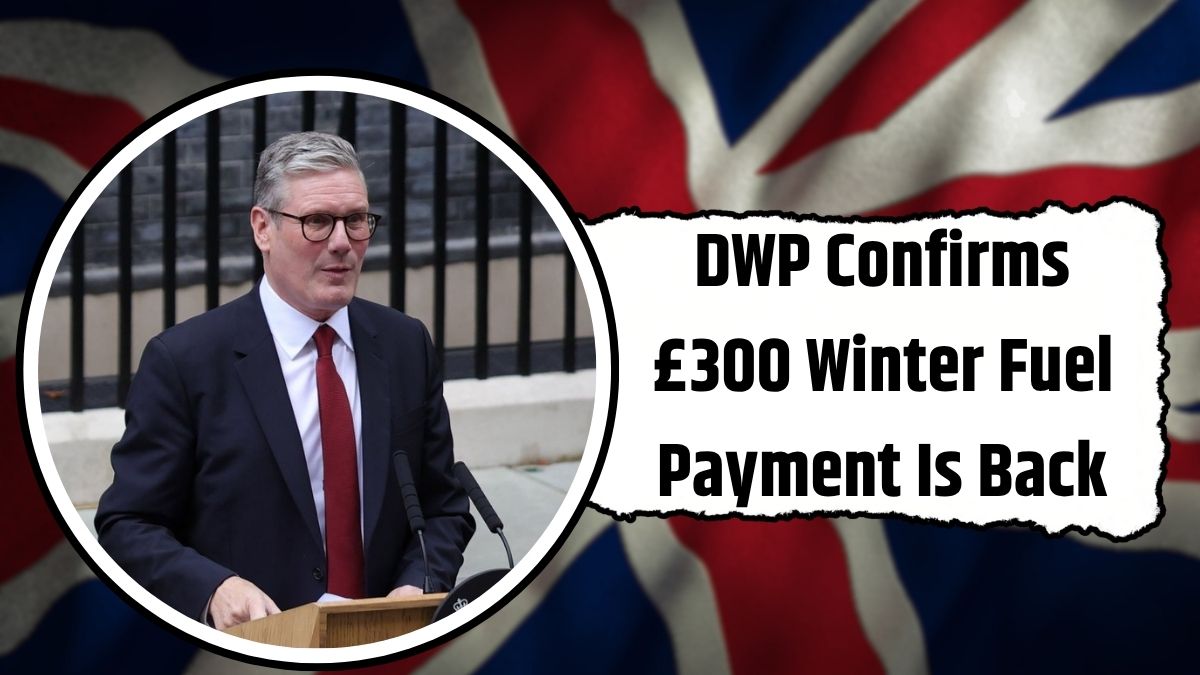The Department for Work and Pensions (DWP) has officially confirmed the return of the Winter Fuel Payment for the upcoming cold season, offering financial relief to millions of pensioners after last year’s controversial pause. With rising energy bills and inflation continuing to impact UK households, this update brings a welcome boost for many older citizens.
Payment Returns After 2024 Pause
The Winter Fuel Payment, a seasonal benefit to help cover heating costs during winter, had been halted in 2024, drawing criticism across the country. Now, Chancellor Rachel Reeves has announced its comeback, revealing that around nine million pensioners will receive between £200 and £300 this year.
The DWP has since updated its guidance, making it clear that anyone born before 22 September 1959 will be automatically eligible for the payment—no need to apply or fill out forms. This simplification is expected to make the process faster and less stressful for elderly citizens.
Automatic Payments—But Not for Everyone
Although age is the main qualifying factor, not everyone will keep the full payment. Those with annual incomes over £35,000 will be required to repay the amount through the tax system.
The mechanism for reclaiming payments from higher earners is still under development, but the DWP and HMRC are expected to release detailed instructions by the end of June 2025. Until then, the policy remains under close public and expert scrutiny.
Frozen Income Cap Raises Equity Questions
A key issue gaining attention is the income limit of £35,000, which the government has frozen, despite ongoing inflation. This means that as salaries rise naturally over time, more pensioners may cross the threshold and be forced to repay the benefit—even if they don’t feel financially secure.
Experts estimate that this static limit could result in nearly 500,000 more pensioners losing access to the payment or being taxed on it by the end of this Parliament.
Experts Warn of Growing Fiscal Drag
Paul Lewis, a leading financial analyst with the BBC, criticized the frozen income limit, calling it part of a larger trend of fiscal drag. This term refers to a situation where static tax thresholds and benefit caps don’t adjust for inflation, pushing more people into higher tax brackets or reducing their eligibility for support.
Lewis compared the Winter Fuel Payment rules to other government benefits like child benefit, bereavement support, and income tax bands, which also remain frozen despite rising living costs. He warned that this could quietly erode public support systems over time.
Prime Minister and Chancellor Defend the Policy
Prime Minister Keir Starmer, responding to criticism, dismissed claims of a policy reversal. He clarified that the return of the Winter Fuel Payment was part of a longer-term strategy, not a “U-turn.” Citing stronger economic growth and lower interest rates, he described the reintroduction as a sign of the UK’s financial recovery.
Chancellor Reeves echoed this sentiment, stating that her upcoming spending review would focus on job creation, raising wages, and investing in public services such as schools and hospitals. She acknowledged that many working families are yet to feel the effects of recovery, and emphasized her commitment to changing that reality.
Will More Tax Increases Follow?
Despite the positive tone, Chancellor Reeves stopped short of ruling out future tax hikes. While she confirmed that current benefit plans—including the Winter Fuel Payment—are covered by previous tax increases, she noted that the government must remain flexible in light of global economic uncertainties.
When asked if she could guarantee no new tax rises, Reeves said it would be “risky” to make firm promises. However, she assured citizens that any future increases would be smaller than the £40 billion tax hike rolled out last year.
What This Means for UK Pensioners
In summary, the return of the Winter Fuel Payment in 2025 is good news for most pensioners—but it’s not without complications. While nine million people will benefit from the reintroduced scheme:
- High-income pensioners earning over £35,000 may need to repay the amount via taxes
- The frozen income limit could gradually exclude more people
- Details on the recovery process are yet to be finalized
- The policy may evolve further depending on the economic outlook
The DWP and HMRC are expected to issue full repayment and tax guidance before the end of June 2025. In the meantime, pensioners should review their annual income, monitor updates, and stay informed about any additional changes to benefit policies.
Final Thoughts
As the UK navigates through economic recovery, the Winter Fuel Payment’s return highlights both the government’s intent to support vulnerable groups and the ongoing challenges of designing fair, inflation-proof welfare programs. With high energy bills expected to persist, the £200–£300 payment could make a real difference this winter—provided the rules remain transparent and equitable.





